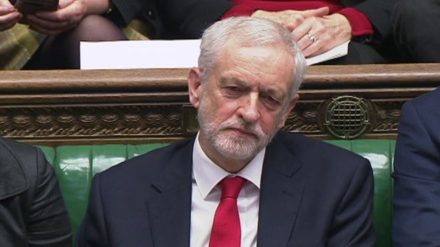
Sign up to LabourList’s morning email for everything Labour, every weekday morning.
It’s been a long and dramatic week in Westminster, but what has actually changed? Jeremy Corbyn made a big speech on Brexit, which told us what we already knew about Labour’s position, i.e. push for general election, get a better deal. For some reason, pundits were surprised that there was nothing new in the speech, though announcing a policy shift now – before the Tuesday vote – would have made little sense. The purpose of the Labour leader’s address was basically, as I understand, to achieve the goals set out in yesterday’s email: communicating his top priority of forcing an election and establishing a narrative that works for Labour.
Theresa May’s deal is still going to heavily defeated – by more than 200 votes according to most estimates. Only one Tory backbencher, George Freeman, has changed his vote and taken the ‘my deal or no deal’ bait; so far, the majority of MPs aren’t convinced by her ultimatum. As Angela Eagle writes for LabourList today, this failure is down to the Prime Minister’s consistent approach ruled by her “partisan and authoritarian instincts”, which have further divided the country and parliament and done nothing to heal our wounds.
We now hear that May has been on the phone to trade union leaders in a desperate bid to shore up support for her deal. This move has surprised many, but the most puzzling choice is not that she approached Unite’s Len McCluskey and GMB’s Tim Roache yesterday, but that she took so long to do so. And she only did so after it was requested by Labour backbenchers – the ‘inbetweeners’ group including Lisa Nandy and Caroline Flint, who campaigned for Remain but represent Leave seats. They themselves, despite having spent months openly considering voting for a Tory deal, were only invited to Downing Street this week. It’s important to note that Gareth Snell, who was at that meeting, still intends to vote against the deal. Too little, too late, Theresa May.
This morning, appearing on Radio 4’s Today, Jeremy Hunt argued that the week’s events proved Speaker Bercow would “frustrate the government at any opportunity” and MPs would “find a way” to block no-deal. Rejecting May’s deal could mean “paralysis”, the Foreign Secretary said. The government is making last-ditch efforts to appeal to Labour MPs, but also to its own Brexiteers here. Can that multipronged approach work, or does it just make everyone unhappy and distrustful? The crucial question is whether May, after suffering a heavy defeat on Tuesday, will U-turn on customs union membership and put all her eggs in Labour’s basket.
Have a great weekend, and remember to take our new (and very quick) survey on the last ten years of Labour leaders, events and campaigns.
Sienna @siennamarla
Sign up to LabourList’s morning email for everything Labour, every weekday morning.



More from LabourList
Key local council elections to watch for clues on our general election chances
Andy Burnham manifesto: Greater Manchester mayor reveals three key election pledges in bid for third term
‘Labour should grasp the chance to secure EU visa deal for young workers’